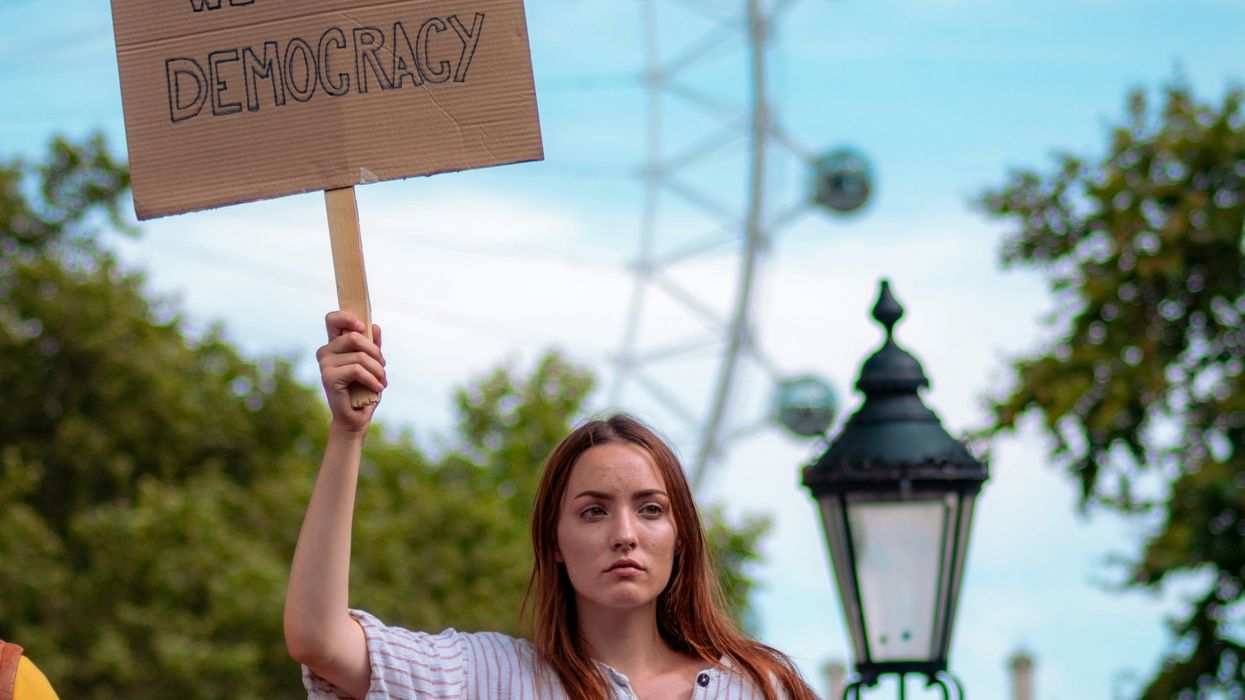Welcome to Democracy in Action, where you will find insights and a discussion with the Fulcrum's collaborators about some of the most talked-about topics.
Consistent with the Fulcrum's mission, this program strives to share many perspectives to widen our readers' viewpoints.
I spoke with these Fulcrum columnists:
Beau Breslin, the Joseph C. Palamountain Jr. Chair in Government at Skidmore College.
Vanessa Castro, a Public Voices fellow of the OpEd Project, the National Latina Institute for Reproductive Justice, and the Every Page Foundation.
Reverend Wesley Bridges, the CEO of Clergy For Prison Reform.- YouTube www.youtube.com
Beau spoke about a new series he's leading in the Fulcrum called “Following Jefferson: Promoting Inter-generational Understanding through Constitution-making.” "Thomas Jefferson thought that constitutions should be rewritten every generation," said Beau. "Which for him meant every 19 years, we ought to metaphorically go back to Philadelphia and rewrite the Constitution."
"For Jefferson, generations represented important markers. And they were distinct," writes Beau in his introductory column. "Let each present people shape the national destiny in their own image, he (Jefferson) argued."
Each month, starting in June, the series will contrast a different element or component of seven constitutions, utilizing ChatGPT, each reflecting the priorities, beliefs, values, positions, and actions of a distinct generation.
In the column, “Eliminating HIV Prevention Is a Public Health Crisis,” Vanessa wrote that the Trump administration is planning to eliminate the CDC Division of HIV Prevention, and what the collapse of HIV prevention will mean to thousands of people in the U.S. who will acquire HIV in the next five years.
"HIV isn't an isolated issue. It's something that impacts all of us," she said. We have 1.2 million people in the US living with HIV currently, and with the elimination of the HIV Prevention Division, we're going to see the ramifications in a variety of areas."
Vanessa also said that HIV is still an epidemic, and that the communities most disproportionately impacted are Black and Latin/a LGBTQ communities.
In “Democracy on the Edge: Take Action Now To Maintain the Constitution,” Reverend Wesley Bridges wrote: Democracy is in danger. Voter suppression efforts are once again on the rise, most recently embodied in the reintroduction of the “SAVE Act.”
"Democracy is yet again under attack, "Reverend Bridges said. "There's no accountability when it comes to seeking absolute power. And that's what this bill is about."
The bill calls for the elimination of the use of driver’s licenses and state IDs and requires birth certificates instead.
Check out the April round table discussion:
- YouTube www.youtube.com
Hugo Balta is the executive editor of the Fulcrum. He is the publisher of the Latino News Network and an accredited Solutions Journalism and Complicating the Narratives trainer with the Solutions Journalism Network.




















Trump & Hegseth gave Mark Kelly a huge 2028 gift